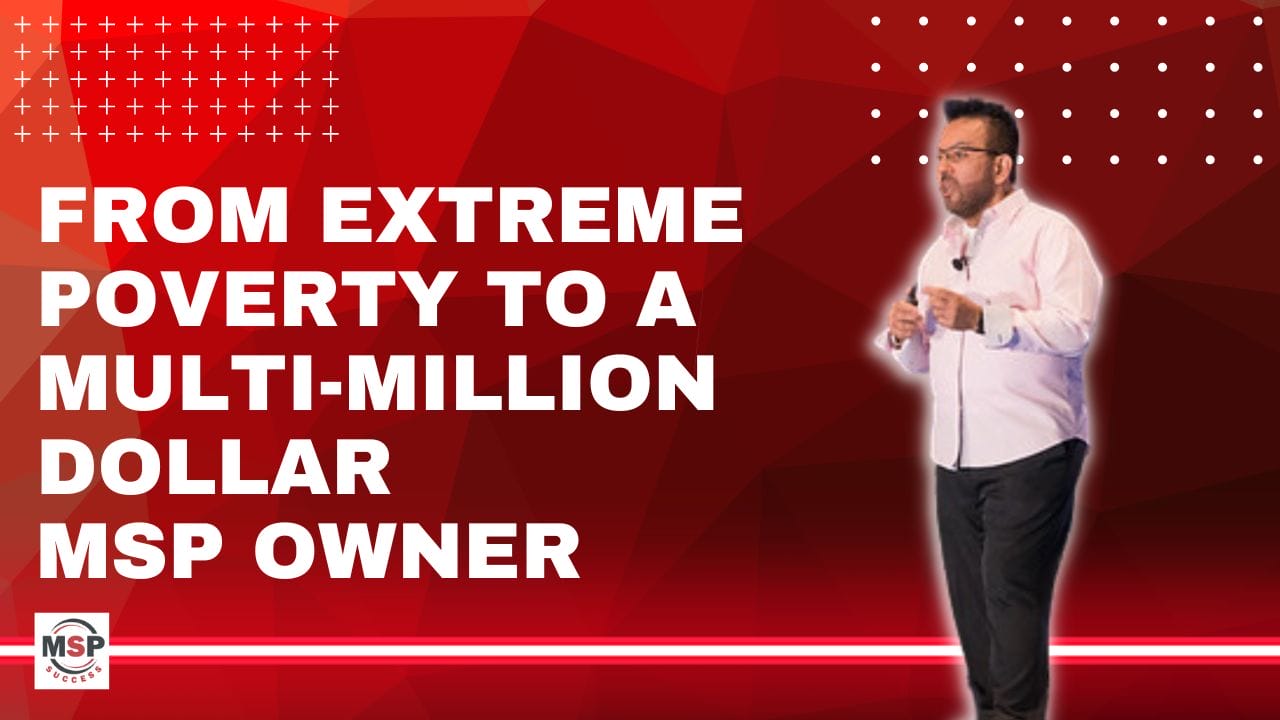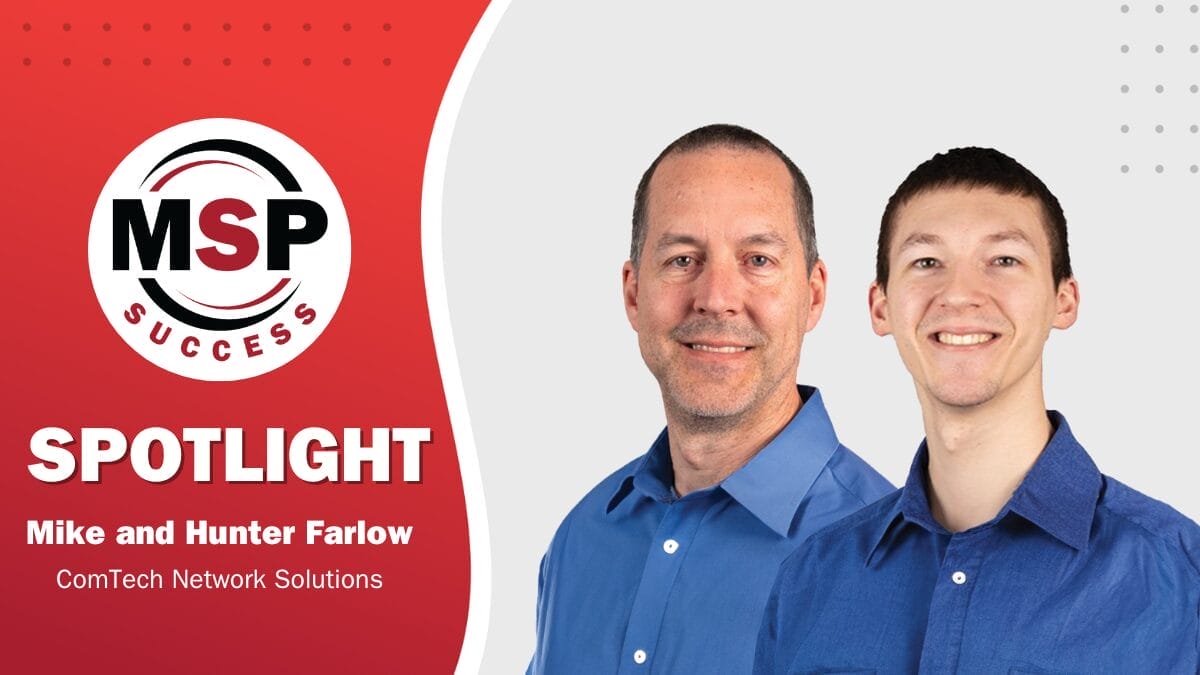When David Javaheri, founder and CEO of Direct iT was a teenager, he made two wishes:
His first wish was to make a lot of money. His second wish was to help a lot of people. “You can’t help poor people by being one of them,” Javaheri said.
At 16 years old, he emigrated from Iran to the United States of America in pursuit of a better life. He had no money. He didn’t finish high school. And English was his second language. But Javaheri wouldn’t let anything hold him back from fulfilling his two wishes.
Determined to create the life he dreamed of in the U.S., he tested and was accepted into Northeastern University.

To pay his way through school and support himself, he worked 120 hours a week. “I was dedicated to my goal of paying for my education and building a better life,” Javaheri said. “I intentionally worked the midnight shift as a proctor so I could study after 2 a.m. when it got quiet. Many times, I didn’t have food, but I wanted to finish my degree, and I wasn’t going to let money be my excuse.”
Upon graduating from college with degrees in computer science, math, and engineering, Javaheri built a hardware and networking company from the ground up, growing it to over 100 employees.
He then sold the company and took on partners for his second tech business working with medium and large enterprise companies.
It was here that Javaheri learned about enterprise tech and discovered his passion for small businesses. “Working with large enterprises made me keenly aware of the underserved niche in the small to mid-size business market,” Javaheri said. “A lot of the basic tools that were necessary to keep a business going securely and reliably were only available for enterprise, and they were too expensive. My goal was to design and patent a set of my own products that worked in small to medium businesses and within their budgets.”
David decided the best course of action was to start his own security company, Direct iT, dedicated to serving SMBs.
He formed his own software division within Direct iT so he could provide enterprise-grade solutions and bank-level security to the underserved small-business IT market.
He assembled a team of top engineers who had worked at top places, including NASA, Harvard, Fidelity, and MIT. Taking almost a year and a half to design and fine-tune, he successfully released BlueBox™, his patented small-business network management tool, to the SMB community.
This solution took overpriced, overcomplex packages and simplified them. (Today, BlueBox does hundreds of monitoring checks every second across the country with thousands of users to ensure maximum network performance and uptime.)
But while Javaheri had successfully built and sold these other companies, when it came to Direct iT, he struggled to reach the level of success he’d seen others achieve. His revenue stalled at $2 million, and he was unable to surpass that amount for eight years.
In 2019, he was overwhelmed, frustrated, and ready to give up.
He’d even started day trading and considered going into a different business. “My revenue wasn’t growing,” Javaheri said. “I couldn’t figure out what I was doing wrong. I felt so defeated.”
But he wasn’t quite ready to give up yet, so he asked a friend to manage the day-to-day while he took time to figure out what to do next. “I knew I couldn’t move the needle anymore on my own,” Javaheri said. “I realized that if I wanted to grow my business, I needed more education on sales and marketing and a coach who could show me the way.”
While on vacation in San Diego, CA, he decided to attend the Technology Marketing Toolkit Roadshow.
He was only planning to attend for one hour so he could get back to his vacation, but then, something unexpected happened.
“I was so absorbed that I ended up staying for the entire two days,” Javaheri recalled. “Robin [Robins] was so sincere. She talked about all the things I wasn’t doing. I discovered that while I was good at sales and had utilized that to grow my businesses, I wasn’t doing any marketing. Robin showed me the importance of marketing and that marketing and sales go hand in hand. And for the first time in a long time, I felt excited about my business.”
He joined TMT in 2019. “At first, I procrastinated,” Javaheri confessed. But inspired and hungry to learn a better way, he connected with the person who would become his coach and peer mentor, Tom Malesic. “I didn’t expect him to come into my life,” Javaheri said, “but he convinced me to join TMT’s top-level peer group. It hit me in December 2019 when I joined and had my first meeting that I wanted to do in two years what others had done in five. That was my goal.”
Javaheri got busy implementing and ran his first full marketing campaign in February 2020 and faithfully met with his accountability group. “I felt so lucky to brainstorm with five highly successful MSP CEOs every Friday,” he said. “That was a start of a new beginning.”
By 2021, he was working aggressively on marketing his services.
In addition to implementing several successful marketing campaigns, he made significant changes to his staff, processes, and tools at the direction and recommendations of his TMT coaches and his new peer group community.

Since then, his business has skyrocketed, increasing by more than 300%. Plus, while 80%–90% of his time is spent on his MSP, he has the freedom to do other business ventures and hobbies. Considered a professional driver, he’s reached 200 mph at racetracks and owns two Lamborghinis with a third one, a Lamborghini Urus, on order and soon to be added to his collection.
“I’ve gotten to a point where I have been able to pick up trading again because I have the freedom to do both trading and owning an MSP,” Javaheri said. “I also collect sports cars and enjoy going to racetracks where I can drive fast.”
His wish of helping people is on track, too. Currently the award-winning spokesperson for TMT, Javaheri is traveling around the country helping other MSPs become more successful. He also gives to charities, such as the Children’s Trust, and has plans to open a not-for-profit one day in the future. “I’ve narrowed it down to two,” Javaheri said. “Either for homeless people or for children who were abandoned by their parents at birth or a young age.”
Here are 11 steps Javaheri took on his journey to success.
Read on to see how you can use them to increase success in your own MSP.
1. Great sales and marketing beat the greatest tech.
In January 2020, Javaheri had zero marketing in place. In February 2020, he launched his first marketing campaign, which was a TMT campaign with seven marketing touches (a campaign developed by Robin Robins).
He chose a vertical market of lawyers to market to, hired a telemarketer to continually cold-call prospects with a script fine-tuned to the campaigns he was running and used TMT’s MAP CRM (Marketing Automation Platform for Customer Relationship Marketing). It’s loaded with complete marketing campaigns designed specifically for MSPs and IT services providers who want to get more leads and sales in less time.
While he did hire a salesperson, he says, “When starting out, it can and should be you” in the salesperson’s role. Today, his marketing is robust and takes center stage. “The recipe to a successful MSP is time, money, TMT MAP CRM, a list of a vertical market, a telemarketer, and a salesperson,” Javaheri said.
2. Be persuasive and persistent.
The No. 1 tactic that will make your offer stand out is repetition. “Some philosophers call persuasion the biggest, most powerful force in the world,” Javaheri said. “So, my advice is pinnacle persuasion. Never stop marketing. Be persistent.”
3. Quit your technical job and move to the sales and marketing department.
Javaheri delegated 90% of his technical responsibility and joined his sales department full-time. “I wanted to focus on sales and marketing,” Javaheri said. “I had enough of the technical side and subscribe to author Milan Kundera’s thoughts on business. He says, ‘Business has only two functions: marketing and innovation.’ There is no technology in there, which can feel strange to tech people, but tech isn’t going to move the needle for you. Marketing opens the door. Sales capture the deal and generate revenue. Tech keeps the client.”
4. Make marketing an urgent priority.
How many times have you lost a client because a competitor had better marketing, but you could have sworn you had better tech? The client doesn’t know you have better tech, so they are going to go with the MSP with better marketing.
The only way to beat these competitors is to beef up your own marketing. “If the server went down, how long do you wait?” Javaheri asked. “If your sales and marketing department is down, how long do you wait? Why not give it the same urgency? Now is the time to take a marketing leap.”
5. Don’t reinvent the wheel.
From early on, Javaheri sought mentors who could help him. In college, he read a lot of stories about successful people and did research. “I was inspired to seek out the right teachers and mentors, so I didn’t have to reinvent the wheel.”
He credits TMT for opening him up to a world he knew nothing about. “I had zero marketing in place in January 2020,” he said. “TMT provided me with campaigns, accountability group meetings, road maps and blueprints, Shock-And-Awe packages, community, seminars, Boot Camp events, and so much more.”
6. Be an influencer.
Stay on top of the news, get involved, and make yourself visible so you become the authority and an influencer. In 2007, because of his ideas and background in security, Javaheri was one of only two IT companies invited to a meeting with Massachusetts Attorney General Martha Coakley and Governor Deval Patrick after a big company in Massachusetts was hacked and had 45.6 million credit and debit card numbers stolen.
It was the worst compromise ever involving the loss of personal data. Based in part on Javaheri’s input, Massachusetts was the first state in the United States to pass security laws in 2010. Since then, 47 states have followed suit. This was widely considered the most comprehensive data protection and privacy law in the United States. Long before cybercrime was common, this was considered radical but now is the gold standard. “We helped give feedback, input, and ideas for 201 CMR 17, the Massachusetts data security and identity theft law,” Javaheri recalled.
How did Javaheri become one of just two IT companies to take part in creating this law? He stayed on top of the news, worked at figuring out how this breach could have happened, then relentlessly pursued the governor and attorney general, letting them know he was an authority on the subject and wanted to help.
“I kept thinking about why the MSP didn’t have the proper security in place. Why didn’t the monitoring catch it?” he said. “And then I started calling the governor and attorney general and told them, ‘We can help. IT companies are the best place for input to this law because we deal with this day in and day out.’ While there were several companies up for consideration, in the end, we were one of the two that were picked.”
7. Innovate.
With identity theft and fraud, the major concerns at the core of the implementation of 201 CMR 17, Javaheri simultaneously instructed the Direct iT team to design security and remote monitoring and managing tools (RMM) and other security programs.
“A small business has the exact same security need as a big business,” Javaheri said. “And while they might not have 45 million credit cards, they will have 200 credit cards. The difference is a small business will go out of business if it gets hacked because it can’t afford to have its entire customer base taken away from them, whereas large national businesses with millions of customers won’t go out of business because they are too big.”
The new designs helped his clients follow the new rules and regulations while securing their data. Solutions included a patented email encryption package that allowed customers such as attorneys and Realtors to send private information in an email. In 2007/2008, these were groundbreaking innovations and eased clients’ minds. “We started by creating email security and continued to make our security package stronger,” Javaheri said. “We still have the best security program around.”
8. Treat everyone with respect.
Every employee at Direct iT preaches that the customer is always right. But more than that, Javaheri is adamant that no one talks badly about a customer. “I’ve heard it from other companies, and I’ve heard it in meetings,” Javaheri said, “that they have a dumb customer. We do not talk behind our customers’ backs at Direct iT, not even internally. We believe our customers are extremely smart in their field, no matter what that field is, and they’d be as smart as us in IT if they had picked IT as their field. We love our customers.”
9. Deliver service that eliminates competition.
Javaheri is so confident he delivers the best service to his customers that he lists names, titles, and the companies that are his clients in his references. “Most companies are afraid to list the name of the company or even the name of the person because they think other IT companies will steal their clients,” Javaheri said. “I honestly believe no one can take care of them better than I can. If they leave, they will come back because nobody takes care of them the way I do.”
10. Raise the entry level for your tech support.
At Direct iT, 86% of incoming client calls have their problem solved within the first 15 minutes. Javaheri credits this to the fact that his clients only speak to level 2.5 techs and higher when they call in. He still hires level 1 techs, but he does extensive training with them before they ever speak with clients.
First, he has them sit behind a level 2.5 or higher tech while they are taking calls. They do this for a minimum of two months. They attend training classes after that before he ever lets them get on the phone with a customer. “I believe we should hire level 1 engineers, but we should train them and not put them on the phone until they become a level 2-plus,” Javaheri said. “Because when level 1 takes most of the calls, if they can’t solve it, they must escalate it to a level 2 and so on. What happens in this process is that the customer’s time gets wasted. By using level 2.5 as our entry point, it creates efficiency and a lot of customer loyalty.”
11. Make security mandatory.
“My DNA is a security company that does IT,” he said. This approach helps him win contracts. Recently, a prospect was comparing prices between Direct iT and two other companies. Both of his competitors charged less than him and listed IT pricing with an optional security package. The prospect asked Javaheri to separate his pricing with IT as the main package and security as an option.
“I told him, ‘Yes, I can do that,’ and separated my IT and security,” Javaheri explained. “But when I went back to present it to him, I reversed it. I told him that in my case, security is mandatory, and IT is an option. I said, ‘Security is mandatory because we believe in the age of cybercrime; we are in a war zone. If they think security is optional, maybe that’s how they handle security in their company. Maybe it’s optional for them, too.’” The client signed the agreement with Direct iT and took both the security and IT package.
Today, Javaheri continues to follow these strategies in his own business.
He officially changed the name of his marketing department to “Marketing Bombardment” to remind his team of the importance of marketing. Other inspiration comes in the form of two posters that hang in his office and home that Javaheri looks at every day.
One, attributed to Jon Gordon, says, “You are not a true success unless you are helping others be successful.” The other, a quote by Thomas Jefferson, says, “If you want something you never had, you must be willing to do something you’ve never done.”
These are words he lives by that provide motivation to achieve his two wishes: to make a lot of money and help a lot of people. “These two quotes are everywhere — in my office, in my house — I believe I’m not a true success unless I can help other MSPs make money,” Javaheri said. “There is a lot of money to be made, and a lot of people need help. You can do both, too, if that is your dream. Just don’t give up. Stay persistent and believe in yourself.”
Click the button below to download the EXACT marketing pieces David used.









